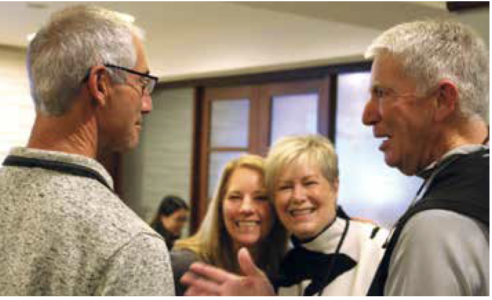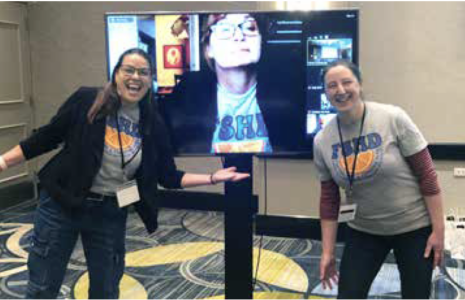Friendships are built intentionally
by Gregg Lichtenstein, Margate City, New Jersey

The 1970s band Three Dog Night proclaimed that “One is the loneliest number that you’ll ever do.” For all of us, particularly those with a challenge like FSHD, it is all too easy to relate to this song – unless we establish strong relationships with other people.
The US Surgeon General Vivek H. Murthy, in a recently published study titled “Our Epidemic of Loneliness and Isolation,” explains that “Social connection is a fundamental human need, as essential to survival as food, water, and shelter…. Loneliness is far more than just a bad feeling – it harms both individual and societal health.”
The evidence is clear and ominous: “Social isolation increases the risk of premature death from any cause by almost 30 percent,” and “Lack of social connection heightens health risks as much as smoking 15 cigarettes a day.”
This study points out that social connection is vital to your health: It is “a significant predictor of longevity and better physical, cognitive, and mental health.” Another study suggested that people who have six or more friends have better health throughout their lives.
The problems of loneliness and managing friendships are not just something experienced by people with disabilities, although our physical challenges can make them worse. They are happening in the larger society of which we are a part. And recognizing that fact can help those of us with differing abilities better appreciate that it is not just about us and encourage us to do something about it.
Friendships don’t just happen by accident. They are built intentionally. The people with the greatest talent for friendship make social contact a priority. Ask yourself:
- How much time a week do you spend socially connecting to people (i.e., friends) outside of work, other than family members?
- How many close friends (however you define this) do you have?
- How many new friends have you made in the last five years?
- What is the condition of your “network of friends”? Are you satisfied? Dissatisfied? Do you feel supported?
- What do you feel might be missing from your “network of friends?” Connecting to others is essential to your health.

The FSHD Society is committed to building community among patients, families of those affected by FSHD, and the incredible range of people that support us (medically, psychologically, physically, etc.).
We are here for you. We have many kinds of opportunities for you to meet people and make new friends. Please take advantage of what we have to offer. Remember, you have gifts to bring to all of us as well. If you don’t see what you want, tell us and together we can make it happen.
Take that first, easy step to improving your health and growing your network of friends. Just reach out! Join us for any one of our Zoom groups (e.g., the Wellness Hour, etc.), attend a chapter meeting in your region, or come to the FSHD Connect conference this June in Denver. We hope to see you there.


Good article Greg. You’re a new friend through the FSH Society, and I’m happy for it.
Thank you Gregg! I am glad we know each other through the FSHD Society!